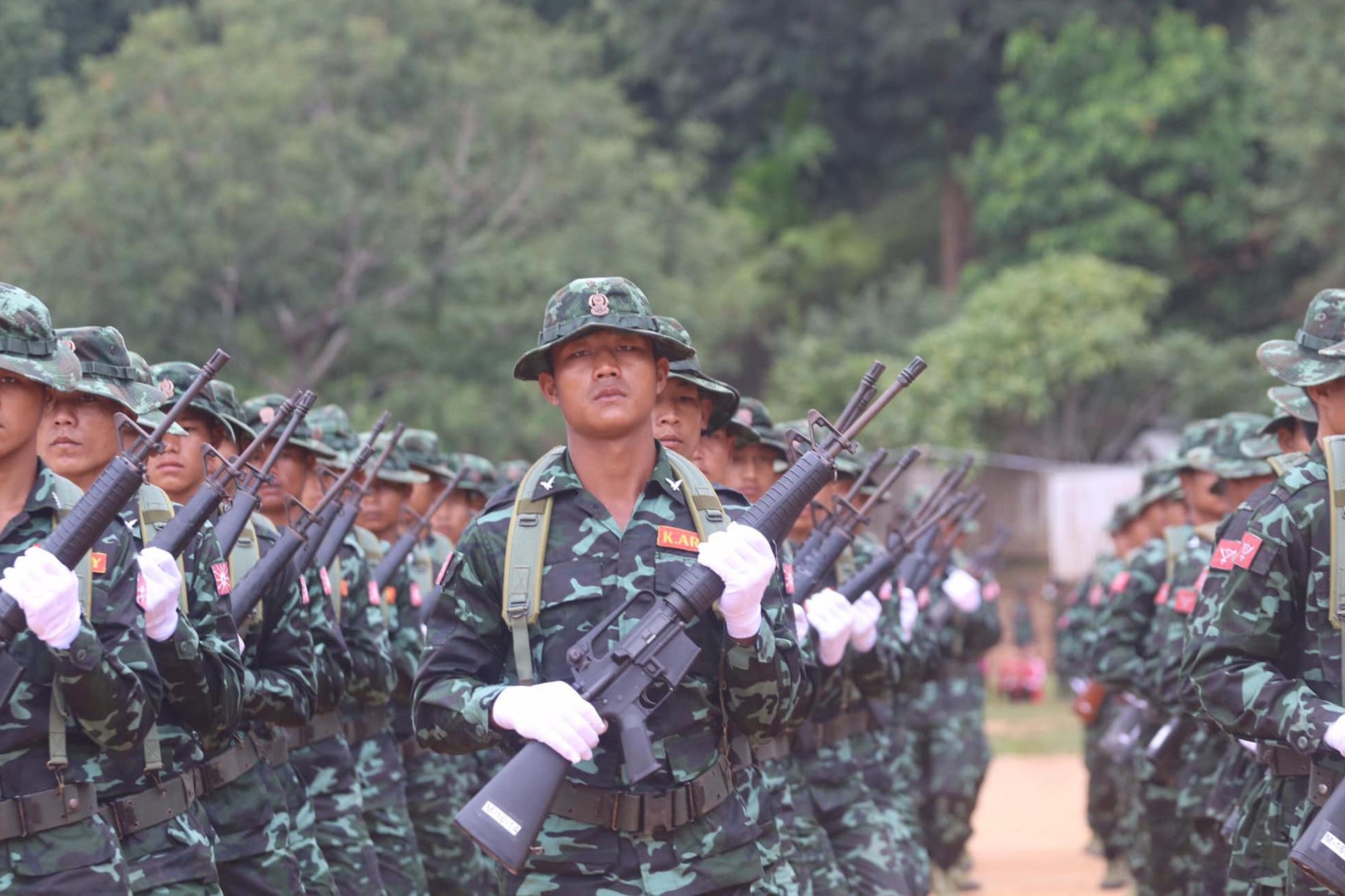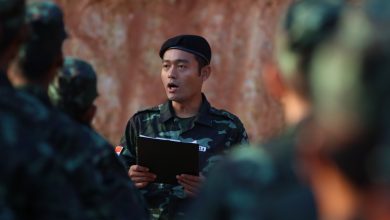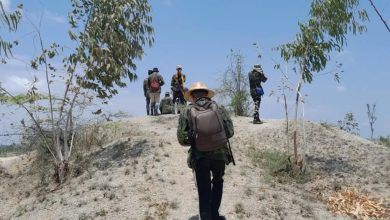
Since late last month, Myanmar’s military has intensified its attacks on Karenni resistance forces in Karenni (Kayah) State and southern Shan State. Nine junta columns are currently operating in this region—two based in Loikaw, three in Bawlakhe, and four in Shan State’s Pinlaung and Pekhon townships.
The result has been an intensification of a humanitarian crisis that has seen the displacement of some 200,000 civilians—roughly two-thirds of the region’s population—over the past two years. Meanwhile, the killing of 29 people, including three Buddhist monks, in an ethnic Pa-O village in Pinlaung Township last week has raised concerns that the junta is trying to create tensions between different communities as a means of weakening its opponents.
To learn more about the current situation, Myanmar Now recently spoke to Khu Nye Reh, the minister for home affairs of the Karenni State Administration Team, a body formed last year to unite ethnic groups in the state and the surrounding region. He is also the liaison officer for the Karenni Army and a central executive committee member of its political wing, the Karenni National Progressive Party (KNPP).

Myanmar Now: Many people are suggesting that the massacre that took place in the village of Nanneint in Pinlaung Township last Saturday was basically the result of an ethnic conflict. What are your views on this?
Khu Nye Reh: There are a lot of Karenni people living in southern Shan State, where many Pa-O people also live. So it is natural to suspect that the military council was trying to create a conflict between our two communities [by carrying out this attack]. Most Pa-O are Buddhists, whereas we, Karenni, are mostly Christian. So we really have to wonder if the military was trying to stoke racial and religious tensions.
MN: Given that this may be the case, what measures are you taking to prevent this from happening?
KNR: Since the incident occurred in State State, and not in our own territory, there is not much we can do to intercept [such attacks] or negotiate [to prevent them]. However, our forces in southern Shan State will continue to fight back against the junta forces there.
MN: What is the current military situation in Karenni State? Where are the major battles taking place?
KNR: Three junta columns have recently started conducting clearance operations in eastern Demoso Township, so clashes have been taking place there every day. Some displaced civilians have fled to the western part of the township, while others have gone to Loikaw or Bawlakhe. But with three columns carrying out attacks at the same time, it’s been difficult for them to hide or take shelter.
MN: Where did those columns come from, and how many troops do they have?
KNR: Two of them are from Bawlakhe and one is from Loikaw. The first column from Bawlakhe arrived on March 7 and has around 70 troops. The second, with around 200 troops, came on March 9. The one from Loikaw has about 100 troops.
MN: How many junta troops do you estimate there are in Karenni State at the moment?
KNR: There are a total of 10 battalions based in the state as part of the Loikaw Operations Command, each with around 70 troops. However, with recent reinforcements, there are probably around 2,000 in the state altogether right now.

MN: What do you think the military is trying to achieve with its current operations?
KNR: I think their goal is to eliminate us, all of the armed revolutionary groups. They also want to achieve dominance over the state so they can hold their election here. They may also be planning to use this as a starting point for future attacks.
MN: Where are they focussing their current attacks?
KNR: They seem to be focussing mainly on areas with a lot of displaced civilians. This is because these are also the places where we receive our strongest support. So we are seeing a lot of attacks on IDP camps.
MN: How do you respond to these assaults?
KNR: We are revolutionary fighters, so we will use every ounce of our strength to fight back. Of course, we have a lot of challenges, including a lack of food and weapons. We also feel bad that not only are we unable to provide help for the public, but we are also dragging them into the problem. However, I would just like to say this—that we will fight with everything we’ve got so that we can one day build a federal union.
MN: What are your more immediate goals for this year?
KNR: We will do our best to drive as many junta soldiers out of the state as we can. [To do this], we will continue to collaborate with the Karenni Nationalities Defence Force and the People’s Defence Force to fight back against the military dictatorship.
MN: How much of Karenni State do you now control?
KNR: Until the recent attacks began, we controlled a large portion of the state. We weren’t able to seize control over major urban areas, but we are doing our best to fight back when they attack us.
MN: What are the greatest needs facing civilians displaced by the recent junta offensive?
KNR: Health issues are probably the biggest problem right now. Because they have very little access to clean water, many are suffering from diarrhoea, skin rashes, and so on.
Since many have had to flee from IDP camps, they now lack shelter, too. And because most only took what they could carry with their bare hands with them, food is also in short supply.
MN: Is there anything else you would like to say about the current situation?
KNR: I would just like to ask the public to understand that we are also facing a number of challenges. We apologise for not being able to provide complete protection. But we can all only be at peace after we overthrow the military dictatorship.
We also appreciate the support that the public continues to give us in our efforts to overthrow this regime and build a federal union. We ask them to keep supporting this fight until the end.



